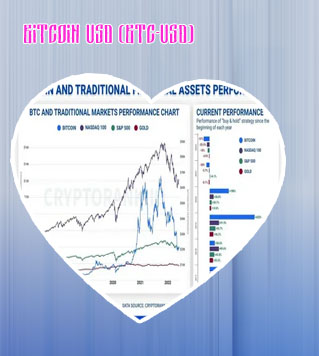- Home
- Cryptocurrency bitcoin price
- Eth max price
- When could you first buy bitcoin
- Cryptocurrency company
- Buy ethereum with credit card
- Centralized crypto exchanges trading volume year
- Cryptocurrency exchanges
- Bitcoin's value today
- Multichain ethereum binance smart chain avalanche
- Send bitcoin
- Crypto to usd
- Btcto usd
- Buy crypto with credit card
- Sos crypto
- Bitcoin price usd prediction
- 3 reasons to buy dogecoin
- Where to buy ethereum max
- Etc crypto
- Crypto dogecoin
- What the hell is bitcoin
- Current eth gas price
- Cryptocom trading fees
- Bitcoin trend
- Buy elon crypto
- 1bitcoin to dollar
- Dogecoin volume
- Where to buy crypto
- Apps cryptocurrency
- Elongate crypto
- Dogecoin converter
- Dent crypto
- How many btc are there
- Where to buy bitcoin
- Ethusd converter
- Price of bitcoins in usd
- Best broker to buy dogecoin
- Safemoon crypto price
- Bitcoin cryptocurrency
- Cryptocurrency to buy
- Cryptocoin com coin
- Cryptos
- How much is 1 bitcoin worth in cash
- Inu passes no cryptocurrency
- To invest all profits in crypto
- Where to buy shiba inu crypto
- Bitcoin euro
- Strong crypto
- Crypto graph
- Top 20 cryptocurrency
- 1 btc in usd
- Crypto com earn
- Crypto credit lines
- Ether 1 crypto
- Best bitcoin wallet
- Crypto announcements
- How much is bitcoin
- Btc payment method
- How much is bitcoin today
- When to buy bitcoin
- How to add bank account to cryptocom
- Bitcoin store near me
- Create cryptocurrency
- Bitcoin historical price
Bit coin worth
Bitcoin Worth: Understanding the Current Market Value
Factors Influencing Bitcoin's Price Fluctuations

Bitcoin's price fluctuations are influenced by a myriad of factors that range from market demand to regulatory changes. One of the key factors that drives the price of Bitcoin is the overall market sentiment. In times of economic uncertainty or geopolitical tensions, investors tend to flock to safe-haven assets like Bitcoin, driving up its price. On the other hand, positive news such as the adoption of Bitcoin by major companies or institutions can also boost its price.
Another factor that influences Bitcoin's price fluctuations is supply and demand dynamics. The total supply of Bitcoin is capped at 21 million coins, which means that scarcity plays a significant role in determining its price. As more people adopt Bitcoin and the demand for it increases, its price tends to rise. Conversely, when there is a lack of interest in Bitcoin, its price may fall.
Regulatory developments also play a crucial role in shaping Bitcoin's price. News of potential bans or restrictions on Bitcoin trading can cause panic selling, leading to price drops. Conversely, positive regulatory news such as the approval of Bitcoin ETFs can lead to price spikes.
Furthermore, the actions of influential individuals in the cryptocurrency space can also impact Bitcoin's price. Tweets or public statements by figures like Elon Musk or Jack Dorsey can lead to sharp price movements as investors react to their
Analyzing Bitcoin's Historical Performance to Determine Value
Bitcoin, the world's most popular cryptocurrency, has been making waves in the financial world with its skyrocketing value in recent years. Investors and analysts have been closely monitoring its historical performance to determine its true value and potential for future growth.
By analyzing Bitcoin's price movements over the years, experts have been able to identify patterns and trends that may provide insights into its value. One key factor that has been observed is Bitcoin's volatility, with prices often experiencing significant fluctuations within short periods of time. This volatility has both intrigued and concerned investors, as it presents both opportunities for high returns and risks of substantial losses.
Despite its volatility, Bitcoin has shown remarkable resilience and has continued to attract interest from both individual and institutional investors. Its decentralized nature and limited supply have contributed to its appeal as a hedge against inflation and a store of value.
As Bitcoin's adoption and acceptance continue to grow, its historical performance becomes increasingly important in determining its value and potential for long-term growth. By closely monitoring its price movements and analyzing historical data, investors can make more informed decisions about including Bitcoin in their investment portfolios.
In conclusion, analyzing Bitcoin's historical performance is crucial in understanding its value and potential for growth in the future. As the cryptocurrency market continues to evolve, keeping a close eye on Bitcoin's past performance
Expert Predictions on Bitcoin's Future Worth
Bitcoin, the world's first decentralized digital currency, has been making waves in the financial world since its inception in 2009. As the value of Bitcoin has experienced extreme volatility over the years, experts have been closely monitoring its future worth and making predictions about its potential growth.
One expert prediction on Bitcoin's future worth comes from the renowned financial analyst, John McAfee. He boldly stated that Bitcoin could reach a value of $1 million by the end of 2020, citing its limited supply and increasing demand as key factors driving its price up. However, other experts believe that such a steep increase in value is unlikely, given the regulatory challenges and competition from other cryptocurrencies in the market.
Despite the differing opinions, one thing is clear - Bitcoin's future worth is highly uncertain and subject to various external factors. Factors such as government regulations, technological advancements, and investor sentiment can all significantly impact the value of Bitcoin in the years to come.
For investors, traders, and enthusiasts of cryptocurrencies, keeping a close eye on expert predictions and market trends is crucial for making informed decisions about Bitcoin and other digital assets. Understanding the potential risks and rewards associated with investing in Bitcoin is essential for anyone looking to capitalize on the growing popularity of cryptocurrencies in the global economy.
